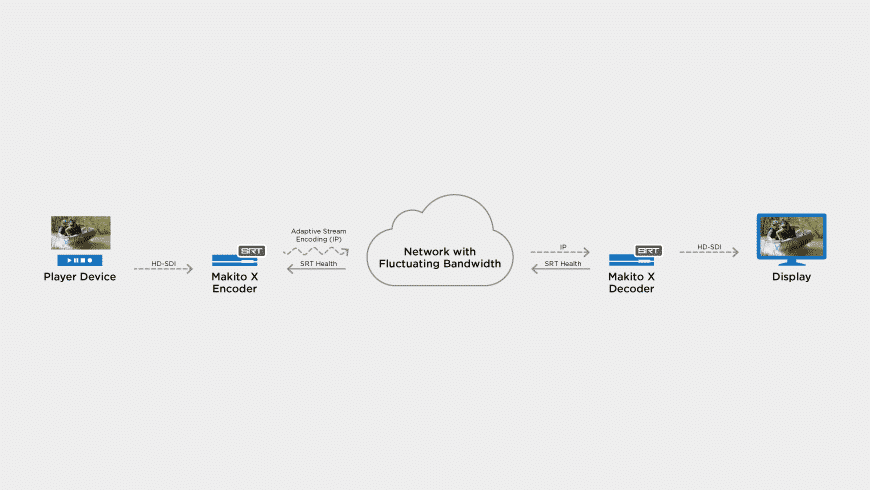
When streaming, network congestion can lead to video artifacts and at worst, an encoded stream might not make it to its destination and video will be lost completely. Network Adaptive Encoding allows encoders to detect fluctuations in the available bandwidth at a given time and dynamically adjust the video bitrate accordingly, assuring optimal stream delivery. Network Adaptive Encoding leverages the power and intelligence of the Secure Reliable Transport (SRT) protocol to gain insight into the health of the network. By constantly assessing metrics such as target latency, send buffer, packet transmission and round trip time, changes in the network capacity are detected and relayed to the encoding engine. If the bandwidth drops below levels that can support the preset output bandwidth, the bitrate is reduced to levels that will assure the best video is transmitted. If the SRT protocol detects that bandwidth capacity is restored, the encoding engine will increase the video bitrate to maximize video quality.